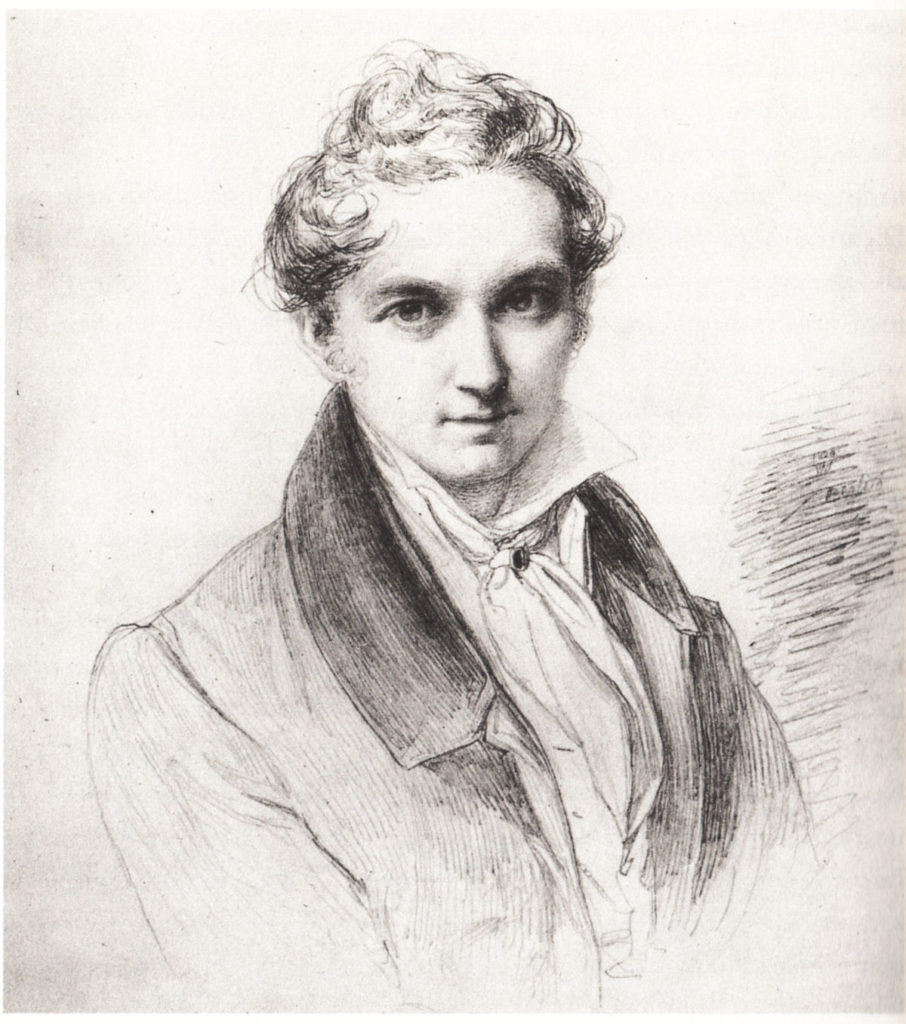
As a child and then as an adolescent, Fanny Mendelssohn’s all-encompassing commitment to music as a pianist and as composer never wavered. Fanny was not quite 15-years-old when her father Abraham dropped the bomb and forbade her to pursue music as a career. She was, instead, to learn how to run a household and raise a family, both of which she did – joyfully and competently – until her terribly premature death from a stroke on May 14, 1847, at the age of 41. She was “allowed” to choose her own husband, and she chose well: the Prussian Royal Court Painter and professor of painting Wilhelm Hensel (1794-1861). Together they had one child, a son named Sebastian Ludwig Felix Hensel (1830-1898).

(“Sebastian Ludwig Felix Hensel.” I think we can all agree that it was Fanny Mendelssohn-Hensel who named her son. “Sebastian”, as in Bach; “Ludwig”, as in Beethoven; and “Felix” as in her brother, Felix Mendelssohn!
Sebastian Mendelssohn was such a good boy. Early on, he began compiling a history of the Mendelssohn family, based on Fanny’s diaries and the voluminous correspondence between his parents, Fanny and Felix. Sebastian’s family history remains the bedrock on which rests all Mendelssohn scholarship to this day.)

Fanny chose her husband well, because aside from theirs being a genuine love match, William Hensel – as a sympathetic, high-end artist himself – encouraged her to practice, to compose, and to have her music published.
So, we must ask the question: with her spectacular talent and the unwavering support of her husband and her friends, why didn’t Fanny break free and go pro, particularly after the death of her father in 1835?
(We would observe that it’s not as if women never became professional musicians at the time; in 1835, the 16-year-old Clara Schumann was taking the Euro piano world by storm!)
The answer is dishearteningly obvious. As an assimilated (and converted) upper middle-class Jew, living in the extremely conservative and class-conscious capital of Prussia – Berlin – Fanny’s family and indeed, Fanny herself believed that she had to maintain an “appropriate” lifestyle, and that she could not and would not rock the social boat. Her principal biographer, Françoise Tillard (Fanny Mendelssohn, Amadeus Press) writes:
“Why would such a talented woman agree to stay home? Obedience to social pressure. Civilized beings must play a role that allows them to identify with those around them, and women did not live alone in the nineteenth century, any more than they travelled alone – unless they absolutely had to. Despite her talent, Fanny – a model wife and mother, zealous in fulfilling all her family duties – conformed.”
(At the conclusion of this post we will observe that having turned 40 in 1845, Fanny finally screwed up the courage and began to publish some her music. But for reasons to be explained, her professional “breakout” was far too late to have any impact on her creative life.)
…continue reading, only on Patreon!
Become a Patron!